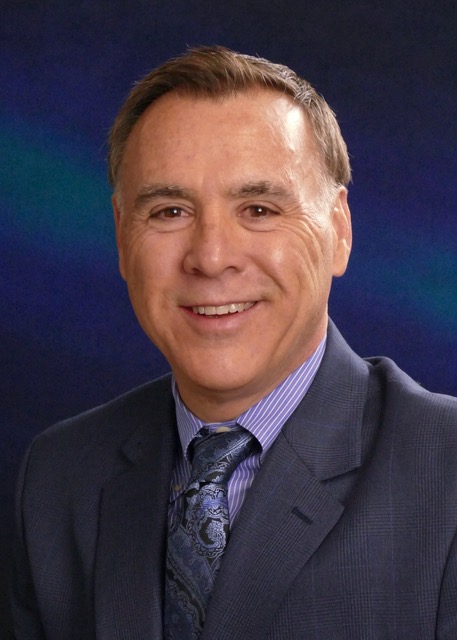
Engagement - The New Unit of Value in Behavioral Healthcare Transformation

Steven Millette
March 30, 2021
Here at Gloo, we’re on a mission to power the behavioral health industry with the goal to “Advance Recovery Excellence.”
But what does that even mean?
Let’s back up.
Within the behavioral health and recovery space, we’ve Championed the value of promoting the personal growth of others for years, and we know that behind every great technology platform or data organization are individuals (we call them our Champions) with the right tech, the necessary tools, and data-informed insights needed to advance Recovery Excellence.
We’ve identified four areas common to excellence in recovery organizations:
- Care for the caregiver - Recognizing the value of and showing true support for staff and providers including appropriate leadership development, practical emotional and wellness support like mitigating compassion fatigue.
- Recovery-oriented care - Embracing a strengths-based, client-centered approach that treats the whole person across a comprehensive continuum of services and support.
- Inclusion of family and loved ones - Acknowledging the profound impact that including the family and loved ones has on the effectiveness and long-term outcomes of care.
- Outcomes and measurement informed care - a commitment to data collection (including patient/client-generated data) and using that data to drive quality improvement and improved value for all.
The purpose of “Well Engaged.”
After more than 30 years in the behavioral health and recovery industry, I no longer work in a direct care provider or operational leader role. My passion and therefore my work have shifted. I now serve the champion through technology for personal growth. Serving the champion means that I help develop and bring to market technology tools that enable behavioral health and recovery focused organizations to facilitate wellness and flourishing for those they serve. This helps me leverage my knowledge, passion and experience in the behavioral health and recovery industry in new, impactful and scalable ways. Champions are people or organizations that help other people grow. Champions come in many forms - coaches, counselors, physicians, nurses, mentors, care managers, supervisors and teachers – to name a few. The champions I serve most are those who champion addiction and mental health recovery. These champions work at the frontline of prevention, treatment and recovery helping people, families and communities improve their wellbeing and optimize their potential in life. I do this by helping these champions develop digital strategies, apply platform thinking and apply the right data solutions.
|
Client Engagement is an essential unit of value in the next generation of recovery and behavioral health service delivery. |
“Well Engaged” is a blog meant to both accentuate the critical importance of individual engagement at every point along the continuum and communicate its role as the new basic unit of value at every level of the system. Patient engagement, client engagement, family engagement, provider engagement, consumer engagement, staff engagement, participant engagement – all of these are arguably the most important predictor of positive outcomes of all kinds. Health outcomes, employment outcomes, financial outcomes, crime outcomes, public health outcomes, educational outcomes - outcomes of all kinds are impacted by and mediated through engagement.
How? That’s what this column is all about. We will explore the many ways we should and can care more about engagement. Why Engagement is the most important thing!
But what is engagement?
The Merriam-Webster Collegiate Dictionary defines it this way: “(i) an arrangement to meet or be present at a specified time and place, or a job or period of employment especially as a performer; (ii) something that engages; (iii) the act of engaging (the state of being engaged), or emotional involvement or commitment, or betrothal (formal engagement to be married); (iv) the state of being in gear; and (v) a hostile encounter between military forces.”
Personally I like this characterization the most - “the state of being in gear.”
Put engagement in the Context of Healthcare.
In the context of health care, patient engagement can be defined as “the desire and capability to actively choose to participate in care in a way uniquely appropriate to the individual in cooperation with a healthcare provider or institution for the purposes of maximizing outcomes or experiences of care." This study described three different attributes of patient engagement: 1) the process, 2) behavior, and 3) the environment. Patient engagement also involves four themes: 1) personalization, 2) access to necessary resources, 3) commitment to delivering quality care, and 4) building a positive patient-provider relationship.
Subsumed by Engagement is the concept of “activation.” This emphasizes patients’ willingness and ability to take independent actions to manage their recovery. This definition, developed by Judith Hibbard and colleagues, equates patient activation with understanding one’s role in the recovery process and having the knowledge, skill, and confidence to manage one’s own recovery and wellbeing.
We at Gloo translate it into this equation.
| A + M = E where “A” = ability, “M”= motivation and “E” = engagement. |
In both definitions, there is one vital characteristic – involvement. Involvement is active and self-directed. Involvement requires the exertion of energy that is sustainable because it comes from a source internal to the individual. Initial motivation may not be internal, but sustained motivation must become internal to the individual at some point along the way. Involvement is multifaceted and influenced by many variables. Involvement confers both a self-directed mind set and cooperative, trusting connection to the care providers and supports.
“Well Engaged” will explore this from a variety of perspectives, through different lenses all the while treating it as a rapidly appreciating unit of value in the new paradigm of wellbeing, recovery capital, and human flourishing.
How do YOU measure and improve client engagement?
Sources
PATIENT EDUCATION AND COUNSELING, Volume 100, Issue 1, January 2017, Pages 30-36, Unraveling the meaning of patient engagement: A concept analysis, Tracy Higgins MA, PhD; Elaine Larson, PhD; Rebecca Schnall, PhD, MPH, RN
HEALTH AFFAIRS VOL. 32, NO. 2: NEW ERA OF PATIENT ENGAGEMENT - What The Evidence Shows About Patient Activation: Better Health Outcomes And Care Experiences; Fewer Data On Costs, Judith H. Hibbard and Jessica Greene, FEBRUARY 2013
Recent Posts
 Blog
Blog
Everything is Figureoutable
Addiction is a solvable problem. It’s not an easy problem. I solved it in my own life after a nearly 15 year fight. And I’ve been working on the problem beyond the single...
 Blog
Blog
Patient Reported Outcomes (PROs) for Improved Engagement
In order to bring you new and important insights about engaging your people, we want to address the relevance and importance of patient/participant generated outcomes—also known...
 Blog
Blog